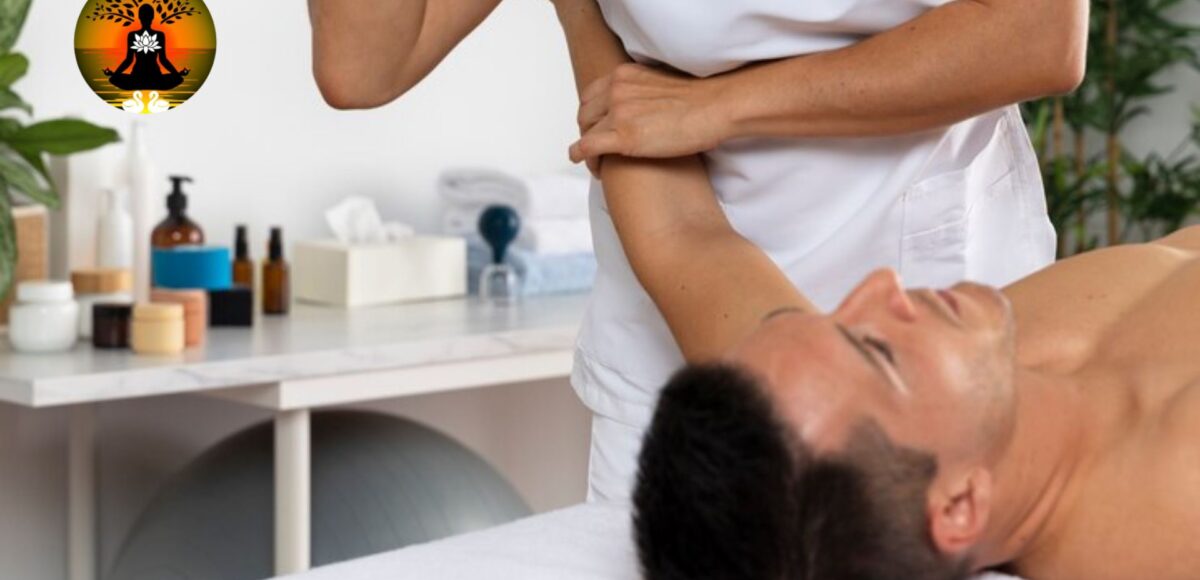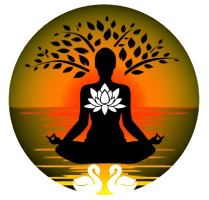
How Ayurveda Offers Holistic Treatment for Spondylitis
Spondylitis is an inflammatory disease that affects the spine’s bones. It can be quite painful and have an adverse effect on one’s quality of life. Usually, it causes pain and stiffness due to the fusion of spinal vertebrae. Ayurvedic medicine offers a comprehensive approach that emphasizes harmonizing the body, mind, and spirit, while mainstream medicine provides a variety of treatments to address the symptoms. Ayurveda is an effective method for managing and relieving spondylitis symptoms because it addresses the condition’s underlying cause. This blog examines how Ayurveda provides thorough treatment for Spondylitis.
Understanding Spondylitis from an Ayurvedic Perspective
According to Ayurveda, spondylitis is a Vata condition in which an imbalance in the Vata dosha causes pain, stiffness, and inflammation in the spine and joints. The Vata dosha controls all bodily movements and functions, such as nerve signals, blood flow, and joint motions. Spondylitis is one ailment that can arise from Vata aggravating owing to reasons such as an unsuitable diet, lifestyle, stress, or accident.
By addressing the underlying causes of the condition and lowering excess Vata, Ayurveda seeks to restore equilibrium. This holistic method develops a customized treatment for spondylitis by considering each person’s distinct constitution (Prakriti), present dosha state, and any particular symptoms.
Essential Ayurvedic Treatments for Spondylitis
To effectively treat spondylitis, Ayurveda employs a variety of therapies, such as dietary adjustments, Panchakarma treatments, herbal medicines, and lifestyle changes. The following are some essential Ayurvedic techniques:
Herbal Remedies
Ayurveda suggests using a variety of herbal therapies to treat spondylitis symptoms. Many herbs, including ashwagandha, Guggulu, nirgundi, and shallaki, are well-known for their analgesic and anti-inflammatory qualities. These herbs aid in pain relief, inflammation reduction, and tissue and cartilage regeneration.
Ashwagandha (Withania somnifera): Withania somnifera, also known as ashwagandha, is a potent adaptogen that supports a healthy neurological system, lowers stress levels, and eases pain. It also lessens inflammation and helps to relax muscles.
Guggulu (Commiphora mukul): Known for its analgesic and anti-inflammatory qualities, Guggulu (Commiphora mukul) helps lessen spondylitis-related pain, stiffness, and edema.
Nirgundi (Vitex negundo): A powerful herb that promotes the healing of injured tissues, reduces pain and inflammation and increases mobility.
Shallaki (Boswellia serrata): Shallaki promotes general joint health and is well-known for its capacity to lower inflammation and relieve back and joint pain.
Panchakarma Therapies
The foundation of Ayurvedic medicine is panchakarma, which provides a revitalizing and purifying method of treating spondylitis. These treatments aid in removing poisons (Ama) from the body, dosha restoration, and general health promotion.
Abhyanga (Therapeutic Oil Massage): Abhyanga is a body massage technique that uses heated, medicinal oils to ease tension in the muscles, promote circulation, and lessen the intensity of Vata. This treatment works wonders to relieve joint and spinal pain and stiffness.
Swedana (Fomentation Therapy): Swedana uses steam or herbal poultices to induce sweating, which helps ease pain, relax muscles, and reduce inflammation. Patients with spondylitis benefit from this therapy because it increases comfort and movement.
Vasti (Medicated Enema): This unusual Ayurvedic procedure involves giving medicinal oils or decoctions through the rectum. This treatment works exceptionally well for Vata illnesses like spondylitis because it balances Vata, cleanses the intestines, and reduces inflammation and pain.
Nasya, also known as the nasal administration of herbs, administers medicinal oils or herbal mixtures through the nasal passages. This treatment aids in improving mobility, relieving cervical pain, and removing toxins from the head and neck area.
Kati Basti (Lower Back Oil Pooling): Kati Basti applies heated, medicinal oil to the lower back for a predetermined amount of time. This treatment benefits lumbar spondylitis by strengthening and nourishing the spine while easing pain and reducing inflammation.
Dietary Modifications
Ayurveda strongly emphasizes the need to manage spondylitis with a balanced diet. Certain meals can exacerbate Vata, which in turn causes pain and inflammation. To balance Vata and promote general health, eat a diet high in warm, prepared, and readily digestible foods.
Favor Warm and Nourishing Foods: Consume stews, soups, cooked veggies, and whole grains. Warm, rich foods support tissue nourishment and Vata balancing.
Avoid Vata-Aggravating Foods: Eat less or avoid cold, dry, and light foods like cold drinks, farsan, chips, ice cream, etc. These foods have the potential to exacerbate Vata and spondylitis symptoms.
Add Anti-Inflammatory Spices: When cooking, incorporate spices such as black pepper, cumin, coriander, turmeric, and ginger. The anti-inflammatory qualities of these spices aid in the reduction of pain and inflammation.
Keep Hydrated: Sip warm water throughout the day to stay hydrated and aid in detoxification. Steer clear of cold drinks since these can worsen Vata.
Lifestyle Modifications
Ayurveda suggests a few particular lifestyle modifications to treat spondylitis. Including these techniques can aid in symptom relief and enhance general well-being.
Engage in Gentle Yoga and Stretching: Yoga postures that help strengthen and increase flexibility in the back include Shalabhasana (Locust Pose), Marjariasana (Cat-Cow Pose), and Bhujangasana (Cobra Pose). Maintaining mobility and lowering pain are two other benefits of gentle stretching exercises.
Keep a Regular Sleep Schedule: Ayurveda strongly emphasizes the correlation between optimal sleep and general health. A consistent sleep schedule might aid Vata’s balance and enhance recovery.
Stress-Reduction Techniques: Include techniques that help reduce stress, such as mindfulness, pranayama, and meditation. Stress can worsen the symptoms of spondylitis and is a primary cause of Vata imbalance.
Prevent Excessive Strain: Limit activities like heavy lifting and extended sitting that create undue strain on the spine. Maintain proper posture and make use of ergonomic furnishings.
Regular Oil Massage (Self-Abhyanga): Self-massage with warm sesame or medicinal oils regularly promotes circulation, nourishes tissues, and eases pain and stiffness.
Role of Ayurvedic Wellness Centers
Ayurvedic wellness centers are essential to the provision of all-encompassing spondylitis care. These facilities provide individualized treatment programs according to each patient’s constitution, particular symptoms, and general state of health. For people with spondylitis, these centers’ all-encompassing approach can significantly enhance their quality of life.
Personalized Treatment Programs: Ayurvedic clinics such as YASHAAYU99 Ayurveda Well-being Center provide customized treatment programs that consider each patient’s constitution and state of health. This individualized method guarantees long-term and effective treatment.
Expert Advice: Qualified Ayurvedic doctors offer advice on dietary adjustments, way-of-life adjustments, and herbal medicines especially designed to treat spondylitis.
Therapeutic Services: To aid pain, inflammation, and other spondylitis-related symptoms, wellness centers offer access to Ayurvedic therapies, including Panchakarma, Abhyanga, Swedana, and more.
Ongoing Support and Monitoring: To ensure the best possible outcomes, ayurvedic centers provide continuing support and monitoring to monitor progress and modify the treatment plan.
Emphasis on Holistic Healing: Ayurveda aims to heal the mind, body, and soul. Ayurvedic clinics strongly emphasize this all-encompassing strategy, which aims to improve general well-being rather than only treat symptoms.
The Bottom Line
Treatment for spondylitis with Ayurveda is comprehensive and holistic. Ayurveda heals spondylitis long-term and enhances the quality of life by addressing the underlying causes of the illness, balancing the doshas, and fostering general well-being.Searching for a comprehensive strategy for your health and well-being? The best place is the YASHAAYU99 Ayurveda Wellbeing Center. Our goal is to empower people with Ayurvedic knowledge and assist them on their path to optimum health. We take a comprehensive approach to treating patients, taking the time to understand the subtleties of their constitutions. We stress the significance of Ayurvedic concepts in comprehending medical issues, and we use our extensive knowledge to diagnose and develop individualized treatment regimens.
